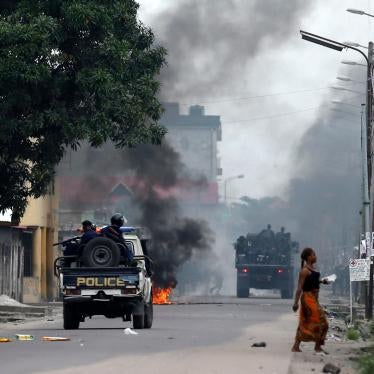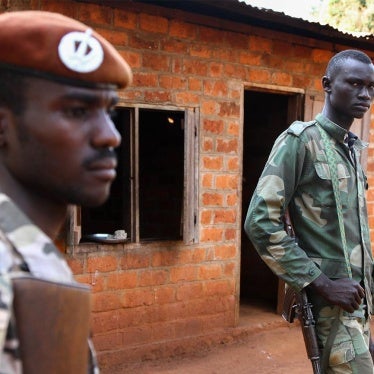On the eve of a regional conference on landmines, Human Rights Watch called on all countries of North Africa to embrace the 1997 treaty banning antipersonnel landmines.
"Egypt, Libya and Morocco are lagging behind the rest of the world in banning this insidious weapon," said Mary Wareham, senior advocate for the Arms Division of Human Rights Watch. "Already, 133 countries have signed this treaty, and it’s going to take effect on March 1, 1999 -- faster than any international treaty in history. North Africa needs to get on this band wagon without delay."
North Africa is a heavily mined region -- with all countries affected by the weapon. Egypt, which claims to suffer from some twenty-three million uncleared landmines, is also the sole remaining antipersonnel mine producer on the continent of Africa. Egyptian manufactured mines are known to have been deployed in countries including Afghanistan, Angola, Eritrea, Ethiopia, Iraq, Nicaragua, Rwanda and Somalia. For these reasons, the International Campaign to Ban Landmines has chosen Egypt as the site for its Fifth International NGO Conference in late 1999.
Tunisia and Algeria are the only countries in North Africa which have signed the treaty. Human Rights Watch urged them to ratify and implement the treaty as soon as possible. To date sixty countries have ratified the treaty, including Jordan, Qatar and Yemen in the region of the Middle East and North Africa.
Wareham urged Tunisia and Algeria to start destruction of their stockpiled antipersonnel landmines, to accelerate their demining programs in order to clear all antipersonnel landmines within ten years, and to provide assistance to landmine survivors. She also called on them to comply with the treaty’s requirement to report on their progress in implementing the treaty.
While some in the Middle East/North Africa region are very hostile to a landmine ban at this time -- including Egypt, Iraq, Israel, Libya, and Syria -- nearly every country has expressed support for a ban at some point in the future. "The landmine problem is not going away," said Wareham. "The time to ban antipersonnel mines is right now."
Human Rights Watch is a member of the 1997 Nobel prize-winning International Campaign to Ban Landmines. It is also coordinator of the Landmine Monitor initiative, a global reporting network that reports on implementation of the treaty and on the humanitarian response to the global landmine crisis. The 1997 Mine Ban Treaty comprehensively bans all antipersonnel mines, requires destruction of stockpiled mines within four years, requires destruction of mines already in the ground within ten years and urges extensive programs to assist the victims of landmines.
The two-day regional meeting on landmines is hosted by the Observatoire des Transferts d’Armaments (France) and Institut Arabe des Droits de l’Homme (Tunisia). For more information please consult: Human Rights Watch Fact Sheet: The Mine Ban Treaty and the Middle East and North Africa, July 1998.








